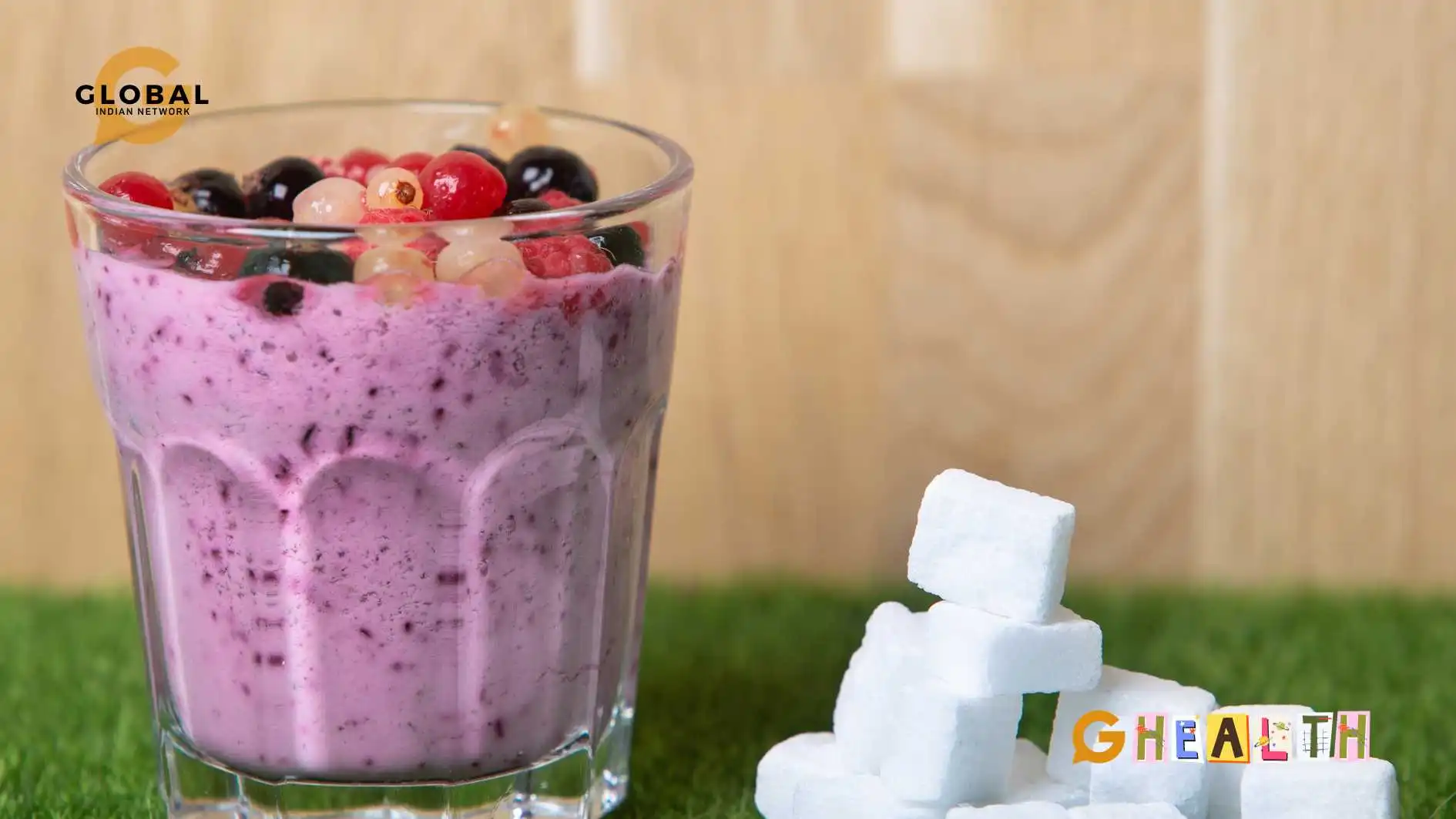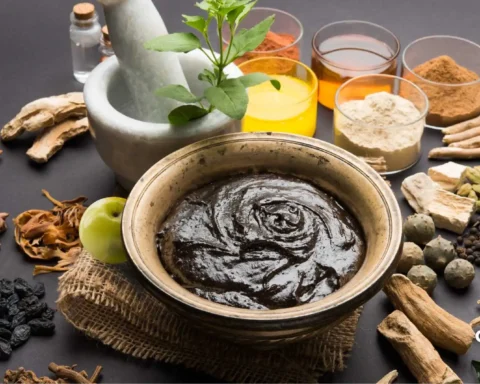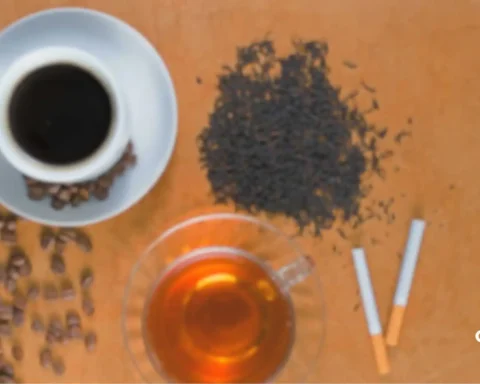Welcome to the eye-opening journey into the world of hidden sugar in food, where the seemingly innocuous sweetener lurks in unexpected places, wreaking havoc on our health. In this exploration, we'll unveil the sugar saboteurs that can silently contribute to various health issues. Get ready to empower yourself with knowledge and make smarter choices for a healthier, more vibrant you!
Table of Contents
What is Hidden Sugar?
Hidden sugar refers to sugars added to various food and beverage products, often without being clearly labelled as "sugar" on the packaging. These sugars may be listed under different names and can be challenging to identify in the ingredient list. Unlike naturally occurring sugars in fruits or dairy products, hidden sugars are typically added during food processing to enhance flavour, increase shelf life, or improve texture.
Types of Hidden Sugars?
Hidden sugars can go by various names on ingredient labels, making it essential to be vigilant when reading food labels. According to the American Heart Association, World Health Organization, and the U.S. Department of Agriculture, these are some common types of hidden sugars and their estimates of sugar content in them.
The amount of sugar in these sweeteners can vary depending on the specific product and brand. Keep in mind that these are rough estimates, and the sugar content may differ between different products and formulations:
High-Fructose Corn Syrup (HFCS): HFCS primarily comprises approximately 55% fructose and 45% glucose. A typical serving of a product containing HFCS can contain several grams of sugar, but the exact amount will vary.
Corn Syrup: Corn syrup or corn sweetener and corn syrup solids are primarily glucose, so it doesn't contain the fructose found in HFCS. It is not as sweet as HFCS or sucrose.
Sucrose (Table Sugar): One teaspoon of table sugar, raw sugar, or brown sugar and glucose solids contains about 4 grams of sugar, which is a 50/50 combination of glucose and fructose.
Dextrose: Dextrose is a simple sugar, and one teaspoon of dextrose contains about 4 grams of sugar.
Maltose: Maltose is a disaccharide like sucrose but comprises two glucose molecules. One teaspoon of maltose or malt syrup contains about 4 grams of sugar.
Lactose: Lactose, found in dairy products, is less sweet than other sugars and contains about 4 grams of sugar per teaspoon.
Fructose: One teaspoon of pure fructose contains about 4 grams of sugar.
Agave Nectar: The sugar content in agave nectar can vary, but it's generally sweeter than sucrose. It contains around 16-20 grams of sugar per tablespoon.
Honey: The sugar content in honey varies depending on its source and processing. On average, a tablespoon of honey contains about 17 grams of sugar.
Maple Syrup: One tablespoon of pure maple syrup contains approximately 12 grams of sugar.
Brown Rice Syrup: The sugar content in brown rice syrup can vary, typically around 3 grams of sugar per teaspoon.
Fruit Juice Concentrate: The sugar content in fruit juice concentrate or any canned fruit varies depending on the fruit it's derived from and the concentration level. It can range from 13 to 20 grams of sugar per tablespoon.
Molasses: One tablespoon of molasses contains about 14 grams of sugar.
Cane Sugar: In terms of sugar content, cane sugar, which is made from cane juice, is very similar to other types of sugar. One teaspoon of cane sugar contains about 4 grams of sugar.
Beet Sugar: Beet sugar is chemically identical to sucrose, the type of sugar found in sugarcane. It has the same sugar content as other types of sugar, with about 4 grams of sugar per teaspoon.
Reading nutrition facts, labels, and ingredient lists carefully and being aware of these various names for hidden sugars is crucial for making informed and healthier food choices in your daily diet.
Foods with Hidden Sugars
Hidden sugars can be found in a wide range of savoury, processed and packaged foods, often where you least expect them. Here are some examples of foods in which hidden sugar is commonly hidden:
Sugary Beverages: Soda, soft drinks, energy drinks, fruit-flavoured drinks, and many sports drinks often contain high amounts of added sugars.
Breakfast Cereals: Many breakfast cereals, especially those marketed to children, can be loaded with added sugars. Check the nutrition labels for hidden sweetness.
Yoghurt: Flavored yoghurt, especially low-fat or fat-free varieties, can have a significant amount of added sugar. Opt for plain yoghurt and add your own fresh fruit for sweetness.
Granola Bars: While they may seem like a healthy snack, some granola bars can contain a surprising amount of added sugar, which is equivalent to 9 teaspoons of sugar.
Condiments and Sauces: Ketchup, barbecue sauce, salad dressings, and even seemingly savoury sauces like teriyaki can contain added sugars.
Canned Soups: Many canned soups, especially those labelled "low-fat" or "light," may contain hidden sugars.
Canned and Dried Fruits: Some canned and dried fruits are sweetened with added sugar, so it's essential to check the ingredient list and choose unsweetened options when possible.
Bread and Baked Goods: Some white bread and bakery products may contain added sugars to enhance flavour. This includes items like hamburger buns and some types of bread.
Pasta Sauces: Some pasta sauces, especially those marketed as "flavoured" or "sweet," can contain added sugar.
Frozen Dinners: Some frozen dinners, particularly those in the "diet" or "healthy" category, may have added sugar to improve taste.
Cereals and Oatmeal: Some seemingly healthy cereals and oatmeal varieties can have added sugars. Always check the labels.
Flavored Coffee Drinks: Many coffee shop offerings include added sugars like flavoured syrups and toppings.
Low-Fat and Fat-Free Products: Foods labelled low-fat or fat-free can often have added sugar to compensate for the reduced fat content.
Sweets and Snacks: Candies, chocolate bars, and other sweets are sweet, but savoury snacks like flavoured potato chips can contain added sugars.
Fruit Snacks and Fruit Roll-Ups: These fruit-flavored snacks are often high in added sugars.
Dressings and Marinades: Salad dressings and marinades can have hidden sugar, especially those with a sweet or fruity flavour profile.
Dairy Alternatives: Some non-dairy milk alternatives, like flavoured almond milk or sweetened coconut milk, can contain added sugars.
Smoothies: Pre-made or store-bought smoothies may contain added sugars from fruit juices, sorbets, or sweetened yoghurt.
Silent Culprit Behind Health Issues
The impact of hidden sugars on health extends beyond mere sweetness. Their excessive consumption can lead to weight gain, diabetes, cardiovascular problems, dental issues, and mood-related disturbances.
Weight Gain and Obesity
Excessive consumption of hidden sugars can lead to weight gain and obesity. Sugary foods and beverages are often calorie-dense, and when consumed in large quantities, they can contribute to an increase in body fat. High-sugar diets can also disrupt the body's natural hunger and satiety signals, leading to overeating. Furthermore, fructose, a common added sugar component, may promote fat storage in the abdominal area, increasing the risk of central obesity and related health issues.
Type 2 Diabetes Risk
A significant side effect of hidden sugar consumption is an increased risk of developing type 2 diabetes. Regularly consuming large amounts of sugar can lead to insulin resistance, where the body's cells become less responsive to the hormone insulin. This condition can result in elevated blood sugar levels, which, over time, may progress to type 2 diabetes. Type 2 diabetes is a chronic and potentially life-threatening disease that requires ongoing management and can lead to complications such as nerve damage, cardiovascular problems, and kidney disease.
Cardiovascular Problems
High sugar intake, particularly from hidden sources, has been associated with an increased risk of cardiovascular diseases. Consuming excessive sugar can raise triglyceride levels, promote inflammation, and lead to higher levels of LDL (bad) cholesterol. These factors contribute to atherosclerosis (the buildup of plaque in arteries) and increase the risk of heart disease and stroke. Monitoring and reducing sugar intake can help protect your cardiovascular health.
Tooth Decay and Dental Issues
Sugar's link to tooth decay is well-established. When you consume sugary foods and beverages, oral bacteria feed on the sugar and produce acid, which erodes tooth enamel, leading to cavities and dental decay. Hidden sugars in processed foods and sugary drinks can be particularly harmful because they often stick to teeth, providing a constant food source for harmful bacteria. Proper oral hygiene, along with limiting sugar intake, is essential for maintaining healthy teeth and gums.
Mood Swings and Mental Health Effects
The rapid spikes and crashes in blood sugar levels caused by hidden sugars can result in mood swings, irritability, and mental health issues. These fluctuations in blood sugar can affect the balance of neurotransmitters in the brain, leading to feelings of anxiety and depression. While sugar intake is not the sole cause of mental health issues, managing sugar consumption can help stabilize mood and overall well-being.
Recognizing and reducing hidden sugar intake is a crucial step toward better health and overall well-being. It's essential to read food labels, choose whole and minimally processed foods, and be mindful of added sugars in your diet to mitigate these harmful effects.
Other Health Impacts of Hidden Sugar in Food
In addition to the side effects mentioned, hidden sugars can contribute to a variety of other health issues:
Non-Alcoholic Fatty Liver Disease (NAFLD): Excessive fructose consumption, particularly from high-fructose corn syrup, can lead to the development of non-alcoholic fatty liver disease. This condition involves the accumulation of fat in the liver and can progress to more severe liver problems.
Chronic Inflammation: High sugar intake, especially added sugars, can promote chronic inflammation in the body. Chronic inflammation is associated with various health problems, including autoimmune diseases, arthritis, and cancer.
Skin Issues: High sugar intake may worsen skin conditions such as acne. The rapid spikes in blood sugar levels can lead to increased oil production and inflammation in the skin.
Weakened Immune System: Sugar can suppress the functioning of the immune system, making you more susceptible to infections and illnesses.
Increased Risk of Cancer: Some research suggests that a high-sugar diet may be associated with a higher risk of certain types of cancer. High sugar intake can potentially fuel the growth of cancer cells.
Hormonal Imbalances: Excessive sugar consumption can disrupt hormonal balance, potentially leading to conditions like polycystic ovary syndrome (PCOS) and hormonal acne.
Digestive Issues: Consuming hidden sugars, especially in processed foods, can lead to gastrointestinal discomfort, including bloating, gas, and diarrhoea.
Metabolic Syndrome: A high-sugar diet is a risk factor for metabolic syndrome, a cluster of conditions that includes high blood pressure, high blood sugar, excess body fat around the waist, and abnormal cholesterol levels. Metabolic syndrome increases the risk of heart disease, stroke, and type 2 diabetes.
Bone Health: High sugar intake may lead to reduced bone density and an increased risk of osteoporosis, which can interfere with the body's calcium absorption and balance.
Addiction and Cravings: Consuming hidden sugars can trigger addictive-like responses in the brain, leading to sugar cravings and overeating, which can further exacerbate health problems.
The American Heart Association (AHA) recommends that adults consume no more than 6 teaspoons (24 grams) of added sugar per day for women and 9 teaspoons (36 grams) per day for men. Children under the age of 2 should not consume any added sugar.
Natural Sugars
Natural sugars, found in whole foods such as fruits, vegetables, and dairy products, are generally considered healthier options than hidden or added sugars found in processed and sugary foods. Here are some essential differences that make natural sugars a better choice:
Nutrient Content: Foods containing natural sugars often contain essential nutrients like vitamins, minerals, dietary fibre, and antioxidants. For example, fruits provide vitamins C and A, fibre, and phytonutrients. Dairy products offer calcium and protein. These nutrients contribute to overall health and well-being.
Fibre: Natural sugar-containing foods are typically rich in dietary fibre, which slows down the absorption of sugar in the bloodstream. This helps prevent blood sugar spikes and crashes and promotes feelings of fullness, aiding in weight management.
Satiety: Natural sugar-containing foods often have a higher satiety factor, making you feel fuller and more satisfied for extended periods. This can help control overall calorie intake.
Lower Glycemic Index: Many natural sugar-containing foods have a lower glycemic index (GI), indicating a slower and more controlled rise in blood sugar levels. This is beneficial for managing blood sugar and reducing the risk of insulin resistance.
Lower Calorie Density: Natural sugar-containing foods are often less calorie-dense than processed foods with added sugars. This can help with weight management and portion control.
No Hidden Ingredients: Natural sugars are not hidden; they are inherently present in the food, so there's no risk of unknowingly consuming excess sugar.
No Artificial Additives: Natural sugar-containing foods are free from artificial sweeteners, preservatives, and additives that may have health implications.
It's important to emphasize that consuming natural sugars as part of a balanced diet is not a cause for concern. These sugars are an essential part of a healthy diet. The issues with sugar consumption often arise when people consume excessive amounts of added sugars in highly processed foods and sugary beverages. These added sugars can contribute to various health problems, including obesity, type 2 diabetes, and heart disease.
So, while it's wise to limit added or hidden sugars in your diet, you can enjoy natural sugars from whole foods as part of a nutritious and balanced diet. Just be mindful of portion sizes and daily calorie intake, and choose whole, minimally processed foods to benefit most from healthy foods.
Healthy Alternatives
When looking for healthy alternatives to hidden sugars, it's essential to choose foods and ingredients that are naturally sweet or provide a touch of sweetness without the need for added sugars. Here are some options to consider:
Whole Fruits: Fresh and unsweetened frozen fruits are excellent natural sources of sweetness. They provide vitamins, minerals, fibre, and antioxidants along with their natural sugars. Use them in smoothies, oatmeal, or as snacks.
Dried Fruits: In moderation, dried fruits like raisins, dates, or apricots can add natural sweetness to recipes. However, be mindful of portion sizes as they are calorie-dense.
Honey: A natural sweetener, honey can be used in moderation as a sugar substitute in recipes, tea, or drizzled over yoghurt. Choose raw and unprocessed honey for maximum health benefits.
Maple Syrup: Pure maple syrup is a great natural sweetener for pancakes, waffles, and baking. Look for 100% pure maple syrup without added sugars or artificial ingredients.
Stevia: Stevia is a natural, calorie-free sweetener derived from the leaves of the Stevia plant. It can be used to sweeten beverages and recipes without adding sugars.
Dates: Medjool dates can be blended into smoothies or used to sweeten homemade energy bars and desserts. They are naturally high in fibre and nutrients.
Mashed Bananas: Mashed ripe bananas can sweeten baked goods like muffins and pancakes without adding sugars.
Cinnamon and Nutmeg: These spices can add natural sweetness and flavour to recipes like oatmeal and baked goods. They are a great way to reduce sugar content.
Unsweetened Applesauce: Unsweetened applesauce can replace sugar in recipes like muffins and add moisture and natural sweetness.
Vanilla Extract: Pure vanilla extract can add a subtle sweetness and flavour to recipes, reducing the need for added sugars.
Yoghurt with No Added Sugars: Choose plain, unsweetened yoghurt and add fresh fruit or a drizzle of honey for natural sweetness.
Coconut: Unsweetened coconut flakes or coconut milk can add natural sweetness to recipes without the need for added sugars.
Nuts and Seeds: Incorporating nuts and seeds like almonds, chia seeds, or sunflower seeds into recipes can provide a nutty, naturally sweet flavour and additional nutrients.
Mint or Fresh Herbs: Mint leaves or other fresh herbs can add a refreshing, subtle sweetness to beverages and recipes.
Fresh Squeezed Citrus Juice: Lemon or lime juice can provide a burst of natural tangy sweetness to salad dressings, beverages, and marinades.
Remember that while these alternatives can help reduce the need for added sugars, it's essential to enjoy them in moderation. Natural sugars can still contribute to calorie intake, so balancing your overall diet and being mindful of portion sizes is vital to maintaining a healthy lifestyle.
Conclusion
As we wrap up our journey through the world of "Hidden Sugar in Food: The Silent Culprit Behind Health Issues," we've uncovered the sneaky troublemaker that silently impacts our well-being. With this newfound knowledge, we can take charge of our health and make savvy choices. So, let's stay sharp, read those labels, embrace natural alternatives, and keep the sugar culprits at bay. Here's to a sweeter, healthier, and more vibrant life—where we're in control and loving it!
FAQs
What is the difference between added sugar and hidden sugar?
Added sugar is sugar intentionally incorporated during food preparation. Hidden sugar refers to sugars not clearly labelled in processed foods, often listed under various names, making them less noticeable to consumers.
Is there hidden sugar in milk?
Yes, there is hidden sugar in milk. It is called lactose, a natural sugar found in all milk. One cup of milk contains about 12 grams of sugar, of which 10 grams are lactose.
What foods are 100% sugar-free?
Meat and seafood, eggs, nuts and seeds, non-starchy vegetables (e.g., broccoli, spinach, kale, leafy greens), unsweetened beverages (e.g., water, unsweetened tea, black coffee), spices, and herbs.
What are three starchy foods?
Three starchy foods are potatoes, rice, and bread.










[…] Sugar has been a topic of extensive discussion in the context of health and nutrition. The effects of refined sugar on health are multifaceted, with both potential benefits and drawbacks. Whether we know it or not, sugar has an all-pervasive presence in the food and drinks we consume daily, with refined sugars prevalent in most processed foods. Understanding the impact of refined sugar on health is crucial for making informed dietary choices and maintaining a healthy lifestyle. […]
[…] The soaring rate of e-waste generation makes it a concern for both the environment and public health issues in […]
[…] quality healthcare services negatively impacts their overall well-being and development, leading to health issues like malnutrition, infectious diseases and high infant mortality […]
[…] as it pertains to the health and comfort of occupants. Poor air quality can lead to extreme health issues, ranging from minor irritations to severe diseases. Effective indoor air quality monitoring systems […]
[…] agriculture. Furthermore, the physical demands of organic farming practices can cause several health issues among farmers, such as musculoskeletal injuries from repetitive strenuous […]